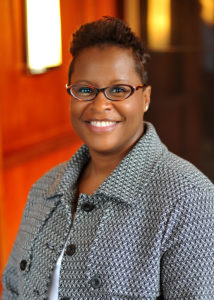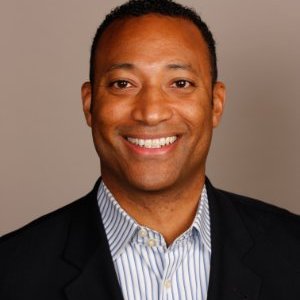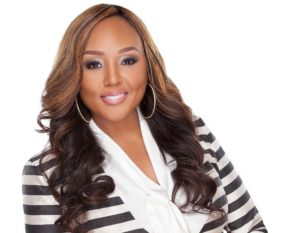Big City, Big Changes – Diversity in the Communications Field
Published on November 30, 2016, at 4:10 p.m.
by Kennedy Studdard.
For Southern students majoring in public relations, Atlanta has become an ideal location for postgraduate internships and jobs. Whether a student starts out in a small boutique agency or at a large, global organization, big cities are a popular destination where people hope to begin their careers.
Alicia Thompson, general manager at Edelman in Atlanta, began her career in “ATL,” and she’s been able to have a full, robust public relations career in the same city for more than 20 years.

“I started in agency with a small lifestyle boutique [agency],” Thompson said.
However, her career has allowed both agency and corporate experience. Thompson attributes having a wider perspective of the industry and a better understanding of clients to those backgrounds. However as large as Atlanta might seem, she noted that once practitioners reach a certain career age, the industry becomes a lot smaller than one realizes.
“The public relations community is super small in Atlanta; everyone knows everybody,” Thompson said.
She also pointed out that after a while in the industry, specialists almost “grow up” with other specialists, making the community feel even smaller. But no matter the internal size, “this industry is about the business of the business and being able to help clients sell their products and/or services,” Thompson reminds young students interested in public relations.
Communications as a whole
According to Thompson, young students must also be aware that public relations no longer encompasses a single branch: It has evolved and takes on various roles that can be found under marketing, advertising, public relations and other communications and business-related fields.
Today, Edelman is known as “a communications marketing firm” because longtime partners and practitioners like Thompson believe that “you’ve got to be open-minded and expand on how you reach people.”
But colleges continue to teach their students to have a very narrowed focus in terms of their majors, restricting a general knowledge of all of the different sectors that now make up integrated marketing communication positions.
Kim L. Hunter, president & CEO of LAGRANT COMMUNICATIONS in Los Angeles, California, shared his point of view on how college students can challenge themselves and expand their knowledge of this growing industry.

“I strongly encourage students to do as many internships as possible while in school,” Hunter said. “There is a direct correlation to securing employment upon graduation if a student has done a number of real world work experience such as internships.
“In addition, taking a course in the business school or joining a trade organization such as PRSSA [can] expand your reach and complement your knowledge of PR. Employers are looking for value, and experience brings value to an employer.”
As this industry ages, so do the requirements to integrate into this field. And students aren’t the only ones having to make adjustments.
Practitioners today are working to stay current because things that were done five or 10 years ago might not work for today’s population. Specialists are also looking at how to better reach and target key publics, and that idea comes from understanding that all audiences are different and diverse.
Diversity and inclusion
Even the idea of diversity and inclusion has expanded in the workplace. Trisch Smith, executive vice president and managing director of Diversity and Inclusion at Edelman, explained what diversity has become.

“Diversity is all things — gender, age, race, ethnicity, religion, sexual orientation and more — those unique characteristics and distinct qualities make us who we are as individuals and as a company,” Smith said.
Perhaps big cities attract young professionals because they are populated with all types of people, venues and opportunities to reach any interest or outlet one might have. But communications practitioners know that more audiences come from a larger population.
Recently, diversity and inclusion have become hot topics among organizations and companies. To put these two concepts in a more visual perspective, think of diversity and inclusion in terms of a party.
“Diversity is inviting someone to the party, and inclusion is asking them to dance and then learning their moves,” Smith depicted.
Smith added that diversity and inclusion work together to make sure people feel appreciated and welcomed, but more importantly their contributions are valued. She said these two components are imperative to success in order to “drive innovation, which drives business success.”
Even at a large global firm, having a diverse workplace “allows you to communicate and reach audiences [through] a greater understanding and appreciation of others,” Smith said.
And it’s those different experiences from all types of people, backgrounds, genders, races, religions and more that make up the vast audiences that communication specialists target.
The future of public relations
Because the public relations field is expanding to incorporate many different facets and skill sets, public relations students must challenge themselves to always learn different aspects of the trade.
Hunter challenges students to become “the next generation to have a dying thirst of knowledge, to go beyond social media for information. Become a voracious reader, become a strong writer AND presenter.”
He encourages students to take time to learn the trade and the business aspect of communications. “It makes you a better communicator [because] at the end of the day, the CEO is interested in the return on investment,” Hunter said.
Not only is learning the business aspect important, but also the payoff can help “inform, influence and help current employees to embrace diversity,” according to Thompson.
With the world becoming more digital, the integration of different methods and practices blurs the lines between them, and new outlets must be created in order to reach larger, diverse publics. Reaching these publics requires fast, innovative thinking in order to accurately represent, reflect and reach the external world of today, and students seeking to become the next great young professional are taking all of their talents and skills to bigger cities to find those challenging, but extremely rewarding opportunities.
Opinions
Comments are closed.





Post comment
I am very thankful for this post! I have been considering moving to Atlanta after graduation but feared the town would be saturated in the PR field. I value great working relationships, so to hear that the community is still relatively small is encouraging! Diversity is so necessary now because we know there are countless ways to handle tasks. Sometimes we just need a little inspiration from our peers. Great article!
Permalink